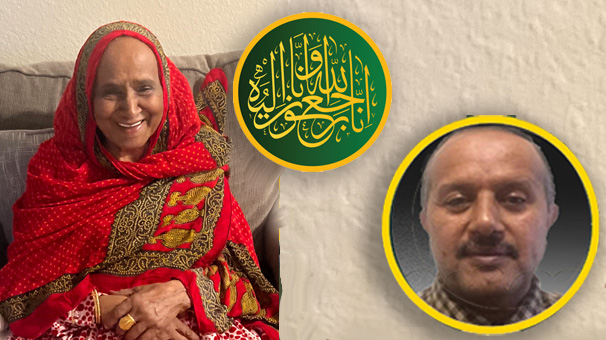The Last Matriarch Passing the Torch of Family Tradition

Life is just a pilgrimage from the womb to the tomb.— Cornel West
In the cycle of life, we move from one milestone to the next seemingly purposefully. How life might select and favor some for longevity over others is one of the mysteries of our existence in this world.
The average life expectancy in Ethiopia is around 67.6 years and in Eritrea it is around 63.6 years. Our last Matriarch, Berur Eibeyoh (ብሩር የዕብዬ), lived to be almost 90 years of age when she passed on the 14th of April 2025.
The longevity of some who live a happy life are the lucky few, and such was a case in point about our Matriarch, from whose rich life a book can be written. What remains etched in my mind’s eye is her trademark smile that promptly warms the heart, shines like a ray from the sun, and brightens the mood like the moonlight. When we depart this life, what we leave behind is nothing more than memories. Essentially, who we are is what memories we leave behind with our friends, foes, families, and relatives. Yet, grief is par for the course.
Humans have to go through a grieving process, that goes without saying and it is inevitable. However, there are deaths that strike our hearts like lightning bolts. And then there are those that force us to focus on the good and long life lived, which only those who are blessed tend to beat the odds by a quarter of a century like our Matriarch did. She not only saw her children’s children, but also their children’s children while all her faculties were intact. As recently as 17 July 2022, she was dancing and celebrating at one of her grand children’s weddings, that of Saleh Abdu Khalifa in Addis Ababa. These are the kinds of milestones that we all feel a glorious envy over our Matriarch. But that’s just a lottery of a long and good life she was graced with. What she carried with her when she started to live between Addis and San Jose, California is the tradition of what her late husband, my Uncle Mohammed Nur and my father started back in Asmara and Addis Ababa.
What the two patriarch siblings and their wives did to spread the love that’s made of a long held tradition they started when my uncle, Mohammed Nur Beyan moved away from Asmara, Eritrea to Addis Ababa, Ethiopia as a young man while my father, Negash Beyan, remained in Asmara, Eritrea. Their sister, Saedia Beyan lived in Korem, Wello, Ethiopia. The latter passed away early in life when her two children were in their formative years. My uncle and my father embraced the two siblings, our cousins, to their fold, namely, Sitti Nurahmed who was married at a very early age and made a home of her own. and the late Abdulkader Nurahmed who is buried in the same cemetery where our Matriarch is buried. And so is our late Abdu Khalifa, whose wife, Tinur Mohammednur Beyan is now graced to embrace the torch of matriarch along with my sister, Saediya Negash Beyan.
On the men’s side we have four, namely, Said Mohammednur, Abdenur Mohammednur, Taha Saleh Yebio, and Saleh Negash who have already taken the family mantle, by the grace of their age. A little bit about the process by which the Mohammednur Beyan and Negash Beyan family have come to become tight knit next of kins is in order.
The tradition that was instilled in our two families between Addis and Asmara continued in the US when the Negash Beyan family settled in SoCal while the Mohammednur Beyan family in the Bay Area. Every occasion – sad or joyous – we traversed the six-to-seven hour drive to be next to one another.
Mohammednur Beyan and Negash Beyan were able to establish this tradition of having their respective children to spend the three months of when schools were closed for the year, one child at a time. I remember mine vividly. My first trip by bus for three days and two nights with overnight stops at Mekelle and Desie. It so happened ወ/ሮ Berur and Fatma Khalifa were traveling back to Addis Ababa to their respectives homesteads. Those three months in Addis and Awasa was a time when I appropriated Amharic language that continues to serve me well to this day.
Our Matriarch from the Bay Area made sure we gathered together when she was alive, keeping the tradition going along my late mother, ወ/ሮ Sofia Said, from SoCal where she was buried. The two women were the elixir that glued our familial relations to continue unabated. The first passed on in 2004. The second, and the last Matriarch from her generation, left us this year. The onus now rests on the rest of us to keep the tradition going. No better way to conclude my thoughts for today than by citing from the sayings of Prophet Muhammad (PBU) one of the four pillars that support the world: Righteous living. The two last matriarchs held this righteous behavior as an ultimate way of living a good life, seldom skipped from praying five times a day to their last days of existence in this world. May they Rest In Peace.



Awate Forum